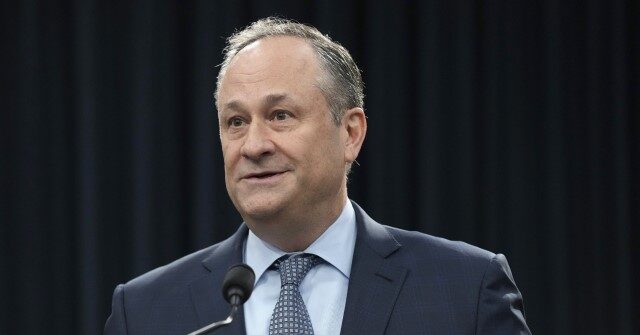During a recent segment of HBO’s “Real Time,” host Bill Maher addressed allegations of physical violence against Doug Emhoff, the husband of Vice President Kamala Harris, who is running for president in the 2024 election. Maher acknowledged the seriousness of the allegations, referencing common standards in such cases, and emphasized the importance of verifying claims before reaching conclusions. Although he recognized the gravity of the situation, he noted that the accusations had not yet reached the same level of credibility as those made against Supreme Court Justice Brett Kavanaugh, which had attracted significant media attention in the past.
The conversation highlighted the complexities surrounding the timing and reporting of such claims. Maher expressed skepticism about the current reliability of the allegations, mentioning a report from the Daily Mail that cited multiple women discussing a past incident at the Cannes Film Festival where Emhoff allegedly slapped a woman whom he believed was flirting with a valet. Maher pointed out that while this claim was brought to light, it still required careful scrutiny, and he urged caution in making judgments before further evidence emerged.
As he continued, Maher raised the question of how the liberal media would respond if the allegations gained more credibility, contrasting this potential development with the rapid media coverage of Kavanaugh’s accusations. He suggested that if the allegations against Emhoff were to become credible, the liberal press would face challenges in maintaining its narrative, especially given the broader implications for the Democratic Party and the credibility of its representatives.
Maher also referred to the broader context of political allegations, particularly in light of former President Donald Trump’s numerous accusations of misconduct involving women. He pointed out the disparity in the way allegations against Emhoff and Trump are treated, emphasizing that while the scrutiny on Emhoff may escalate, it can be juxtaposed with the ongoing challenges facing Trump, who remains a significant figure in the Republican Party despite his controversial history.
Moreover, Maher’s comments reflect a growing concern about the standards applied to different political figures based on their affiliations. He raised the issue of potential biases in media coverage, suggesting that the treatment of Emhoff’s allegations could demonstrate how political affiliations might influence reporting and public perception. The possibility of a double standard in the media’s approach to men in power, depending on their political alignment, was a recurring theme in Maher’s discussion.
In conclusion, while Maher addressed the allegations against Doug Emhoff with caution, he underscored the necessity for transparency and accountability in political discourse. The situational comparison between Emhoff and Kavanaugh, along with the contrasting treatment of Trump, served to illuminate broader issues of media integrity and political bias. Maher’s insights encourage a deeper examination of how allegations are reported in the political arena, advocating for a consistent approach regardless of party lines, and stressing that credibility and truth should always take precedence in discussions of any misconduct.

